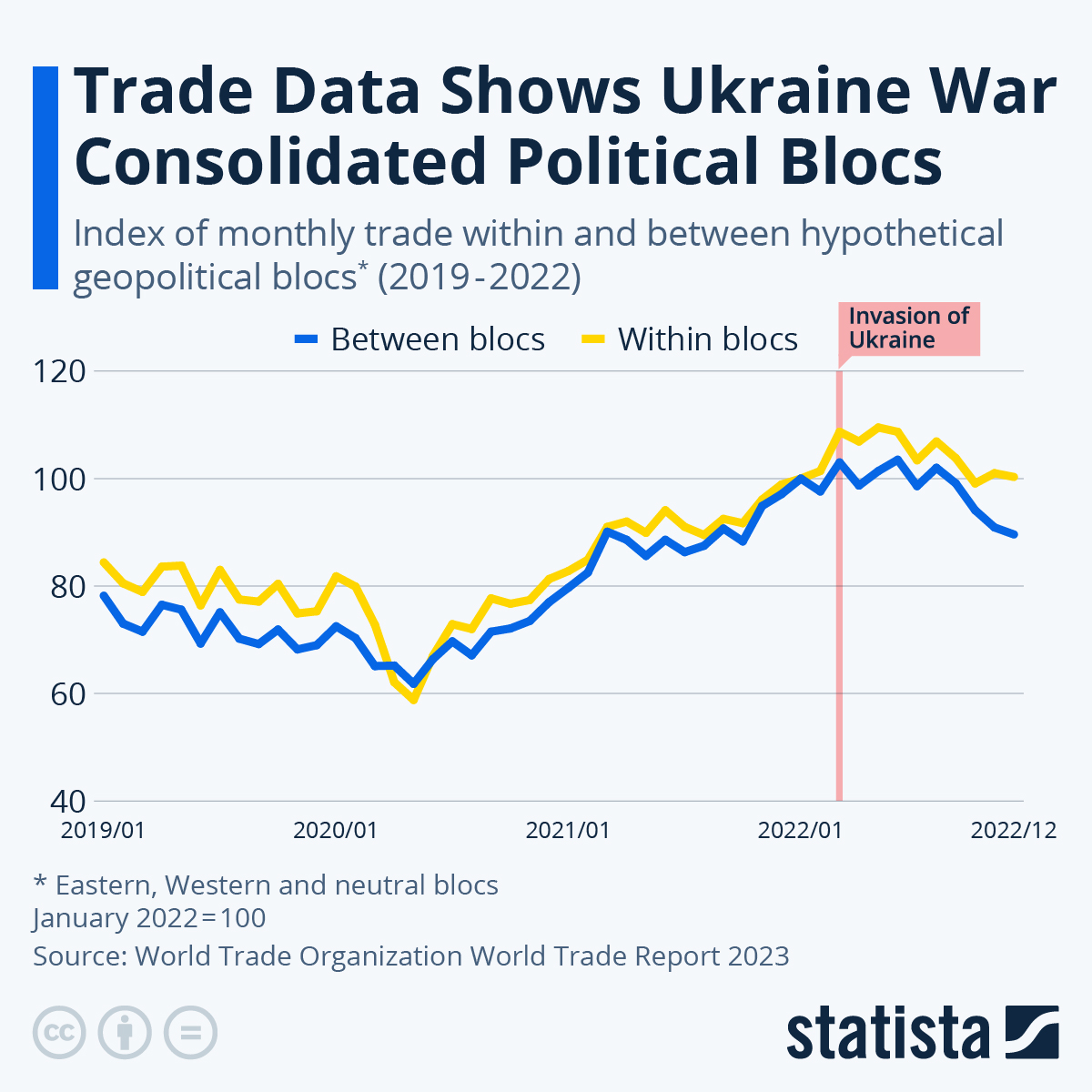Russia's blockade of Ukrainian grain exports and extreme weather events have raised concerns about global food supplies, but the OECD suggests that the situation may not be as dire as it seems, with adjustments and adaptations being made to production and logistics chains to mitigate potential shocks in the market.
Ukraine's President Zelensky is preparing for a long war and fears that some of his country's Western allies are losing faith, as Russia aims to exhaust Ukraine and wear out its partners resolve to continue funding and supplying it with arms.
Ukraine's military offensive against Russian forces in the south and east has made limited progress, prompting discussions about whether the US and other Western countries should provide more powerful weapons or seek a negotiated settlement.
Sanctions imposed on Russia due to the invasion of Ukraine have resulted in fuel shortages, scarcity of readily available items, and impacts on the aviation industry, paper production, plywood manufacturing, cell-phone reception, tire and lubricant supply, and the production of military vehicles.
Poland has announced that it will cease supplying weapons to Ukraine amidst a heated dispute over grain exports, with fears of Ukraine flooding the market with low-cost grains due to blocked Russian export routes through the Black Sea.
Ukraine needs to shift its focus from post-war recovery to preparing for a long war, as a ceasefire or peace talks with Russia are unlikely, and instead should aim to ensure it has the staying power to thrive despite the ongoing conflict, according to The Economist.
The war in Ukraine has significantly impacted European economic growth and increased inflation, with the Swiss National Bank stating that the consequences are likely to worsen in the medium-to-long term, according to a study.
Geopolitics, specifically the war in Ukraine, is the biggest risk to the global economy, according to JPMorgan Chase & Co. CEO Jamie Dimon, outweighing concerns about high inflation or a U.S. recession. Dimon also emphasized the importance of the war in determining the future of the free democratic world and highlighted the strain it has caused in global relationships, particularly between the U.S. and China.
As support for Ukraine from its international allies declines, there are concerns that Russia may exploit weaknesses and fractures in Ukraine's partnerships, particularly as elections in allied countries approach, and tensions between Ukraine and Poland heighten over agricultural exports.
Chinese firms are providing critical support to Russia's struggling economy and military efforts, supplying goods such as drones, helmets, vests, radios, and construction equipment for use in the war in Ukraine, according to analysis by CNBC. These trade flows, which have been ongoing since the onset of the war, are a lifeline for President Vladimir Putin and a lucrative avenue for Chinese companies. The Chinese government is believed to be aware of these trade flows and have acquiesced to them, despite their claims of "normal economic cooperation" with Russia and no targeting of third parties.
Support for supplying weapons to Ukraine is declining among Americans of both major political parties, according to a Reuters/Ipsos poll, posing a warning for Kyiv as it relies heavily on US arms to fight against a Russian invasion.
